
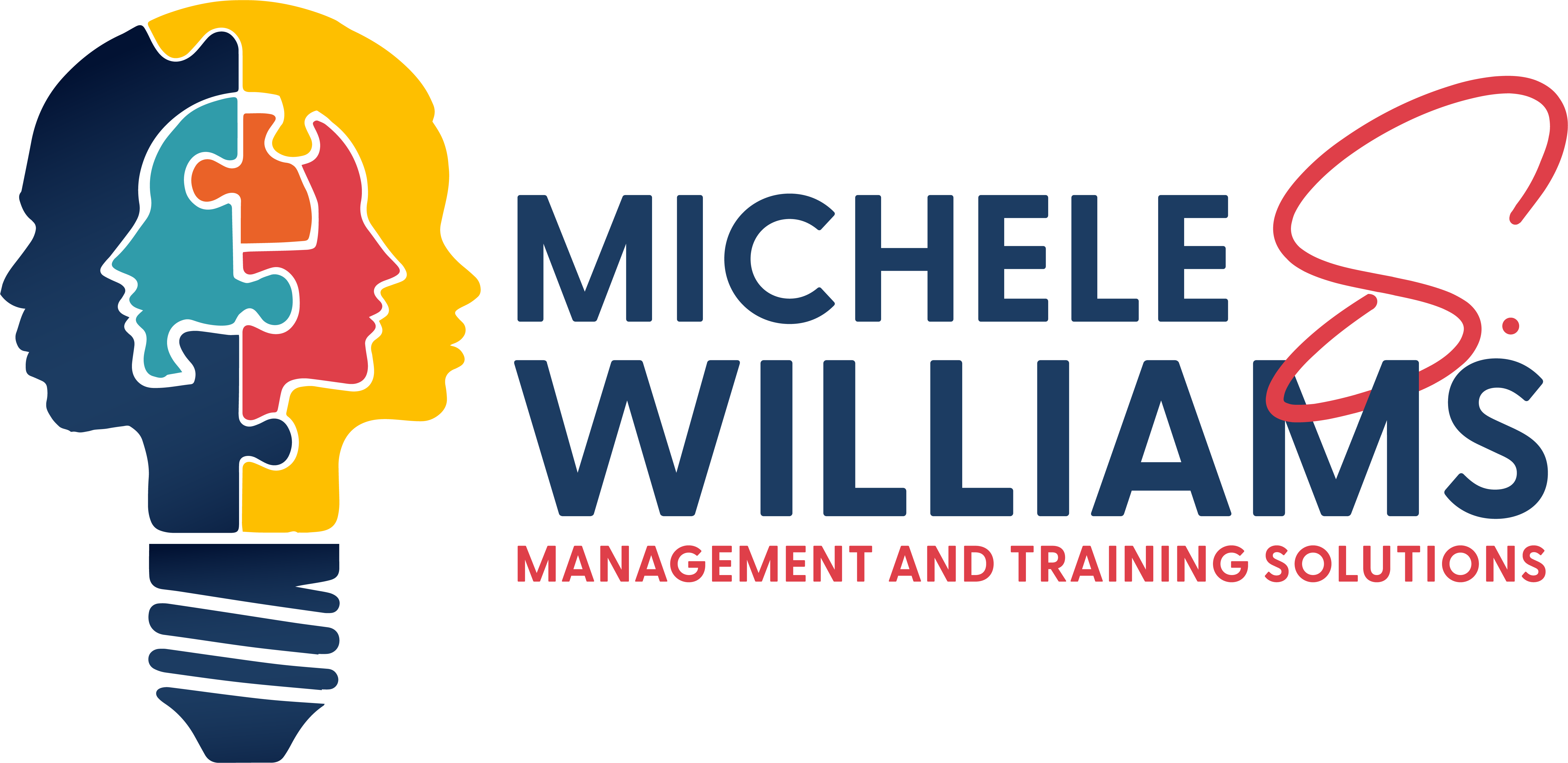
5-Year Strategic Plan to End Homelessness in Kalamazoo County
The Kalamazoo County Continuum of Care (CoC) is currently engaged in the process of developing a Comprehensive Strategic Plan to End Homelessness in Kalamazoo County in partnership with Michele S. Williams, LLC (MSWLLC).
MSWLLC will facilitate stakeholder engagement, conduct data analysis, and work alongside the CoC to draft a strategic plan that reflects evidence-based practices and is tailored to the needs of the local unhoused community.
Building Our Strategic Plan Together
We're building a Strategic Plan to End Homelessness for our community - and we want you to be part of the journey. This hub will keep you informed every step of the way, from listening sessions to data analysis to draft plan development.
Check back here regularly for updates, opportunities to get involved, and ways to share your input. Together, we're creating a roadmap to end homelessness that reflects the voices and experiences of the entire Kalamazoo County community.
Our Approach
01
Phase 1: Foundation & Assessment
- Initial alignment meeting with CoC leadership
- Comprehensive HMIS data analysis to establish baselines
- Review of existing plans (County, Regional, State, municipal)
02
Phase 2: Stakeholder Engagement
- Listening sessions with persons with lived experience
- Focus groups with CoC members and partner agencies
- Key stakeholder interviews
- Public community forums
- Virtual follow-up sessions for broader reach
03
04
Phase 3: Plan Development
- Integration of data findings, best practices, and community input
- Development of monitoring framework
- Creation of equity-centered strategies and accountability measures
- Setting specific, measurable 5-year goals
Phase 4: Feedback & Finalization
- Structured review sessions with all stakeholder groups
- CoC Board and membership comprehensive review
- Final revisions and professional formatting
Current Phase: Community Engagement
As part of the process, UWSCMI will be hosting a series of community engagements throughout the week of September 29 to October 3, 2025.
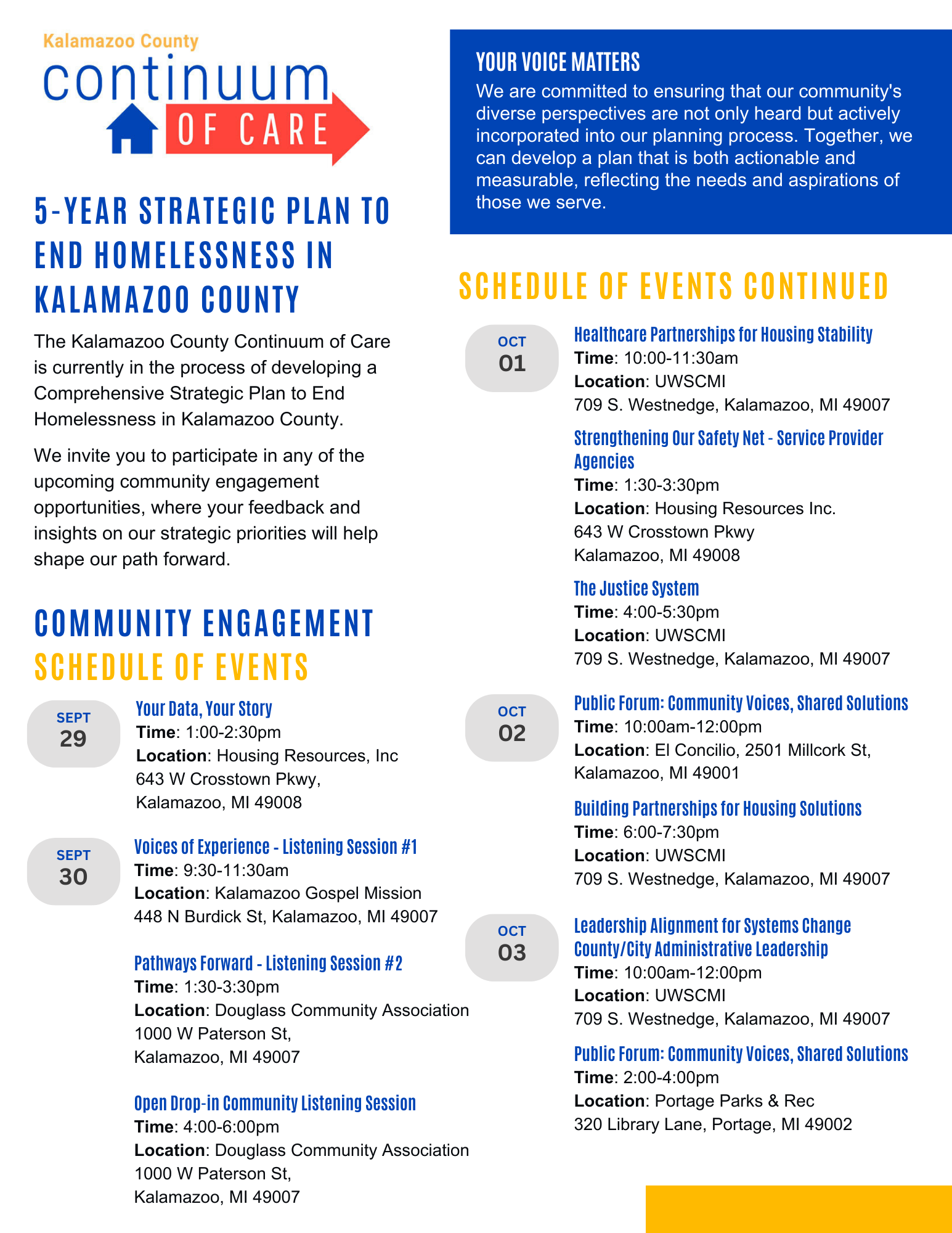
Public Input Survey
Your input is essential to creating a plan that reflects community priorities and addresses the real challenges people face. This survey should take approximately 10-15 minutes to complete.
Data Culture Survey
Purpose: To gather direct input from people whose data is being collected.
Purpose: To assess the current data culture in Kalamazoo’s homelessness response system.
Meet the Team
Our consulting team is led by three African American women who bring not only professional expertise but also lived understanding of the systemic inequities that contribute to housing instability and homelessness in communities across the United States. As Black women in America, we have navigated systems that were not designed with our communities in mind, and we understand intimately how systemic oppression and intersecting forms of discrimination create barriers to housing, healthcare, employment, and other fundamental needs.
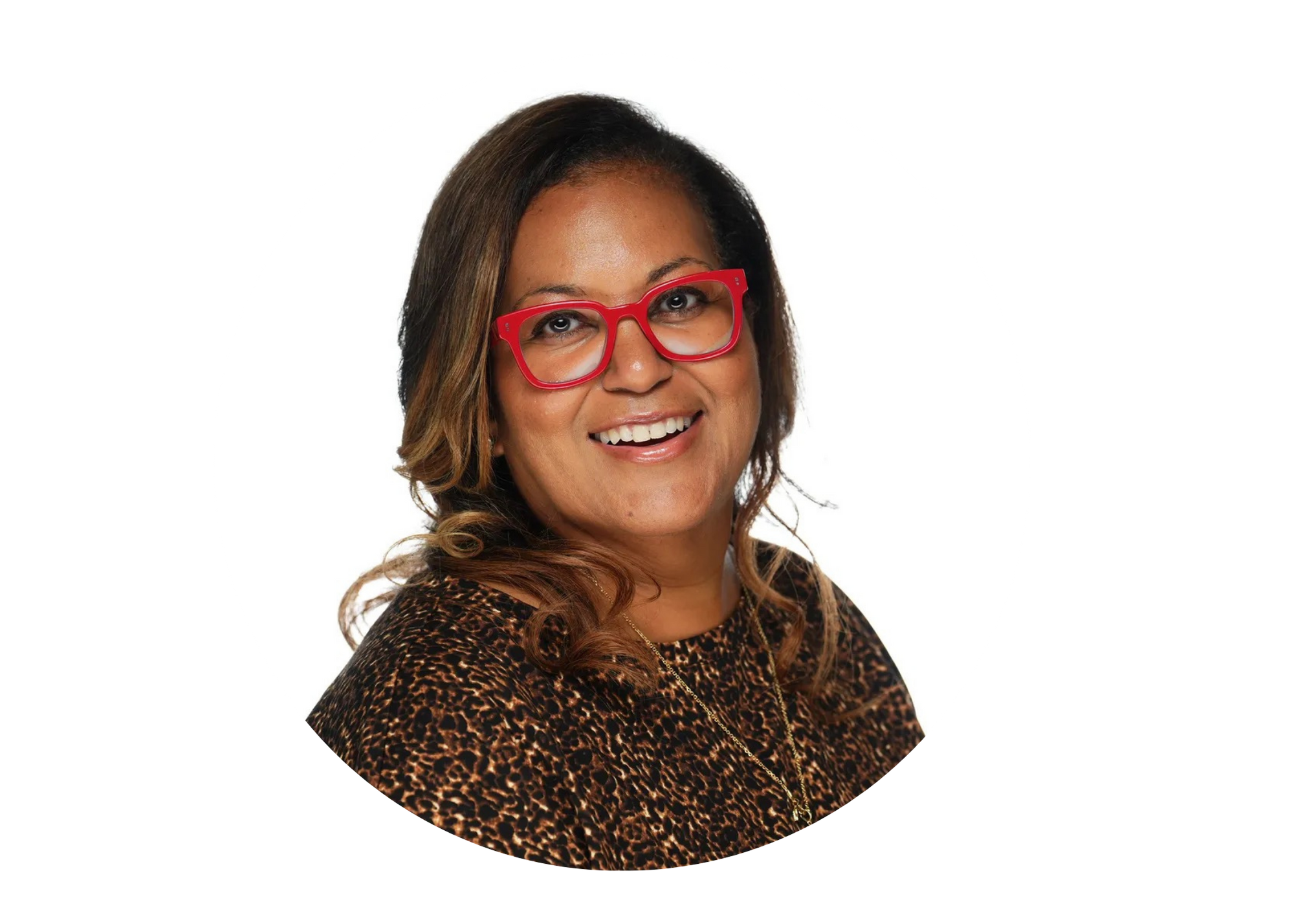
Michele Williams
Founder & CEO, MSWLLC
Michele Salters Williams, our Lead Consultant and Kalamazoo native, brings the perspective of a Black woman who has worked to create change within systems while advocating for those whose voices have been historically marginalized. Her deep roots in the community inform her approach to strategic planning, which is grounded in understanding how policy and practice must address root causes of inequality, not just symptoms.
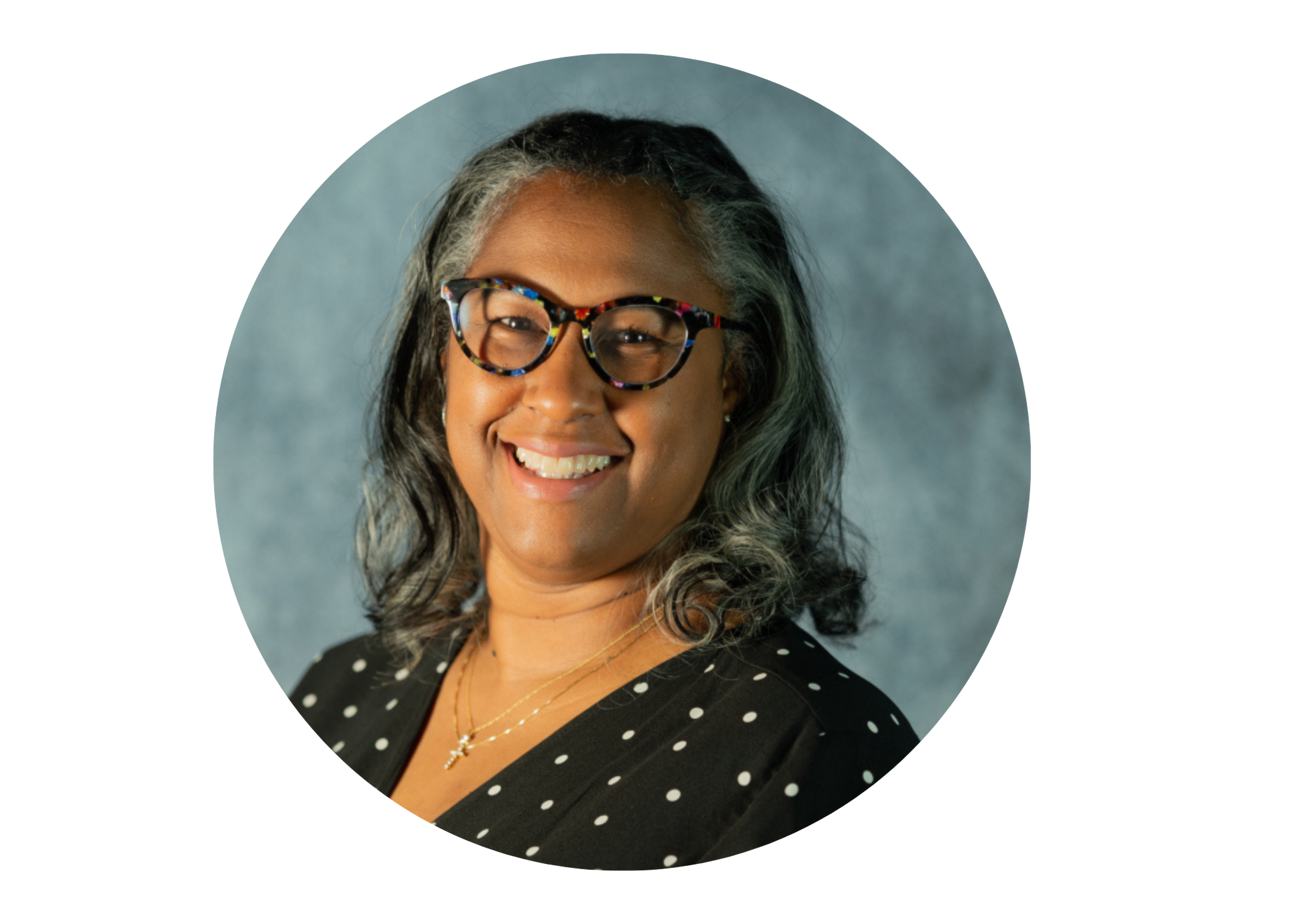
Rori Knight Durham
Founder & CEO, RK Durham Consulting
Rori Knight Durham brings the wisdom of a Black woman who has held leadership positions within government systems while maintaining advocacy for housing justice. Her experience spans the full spectrum from direct service delivery to policy development, always with understanding that true systems change requires centering those most impacted by systemic failures.
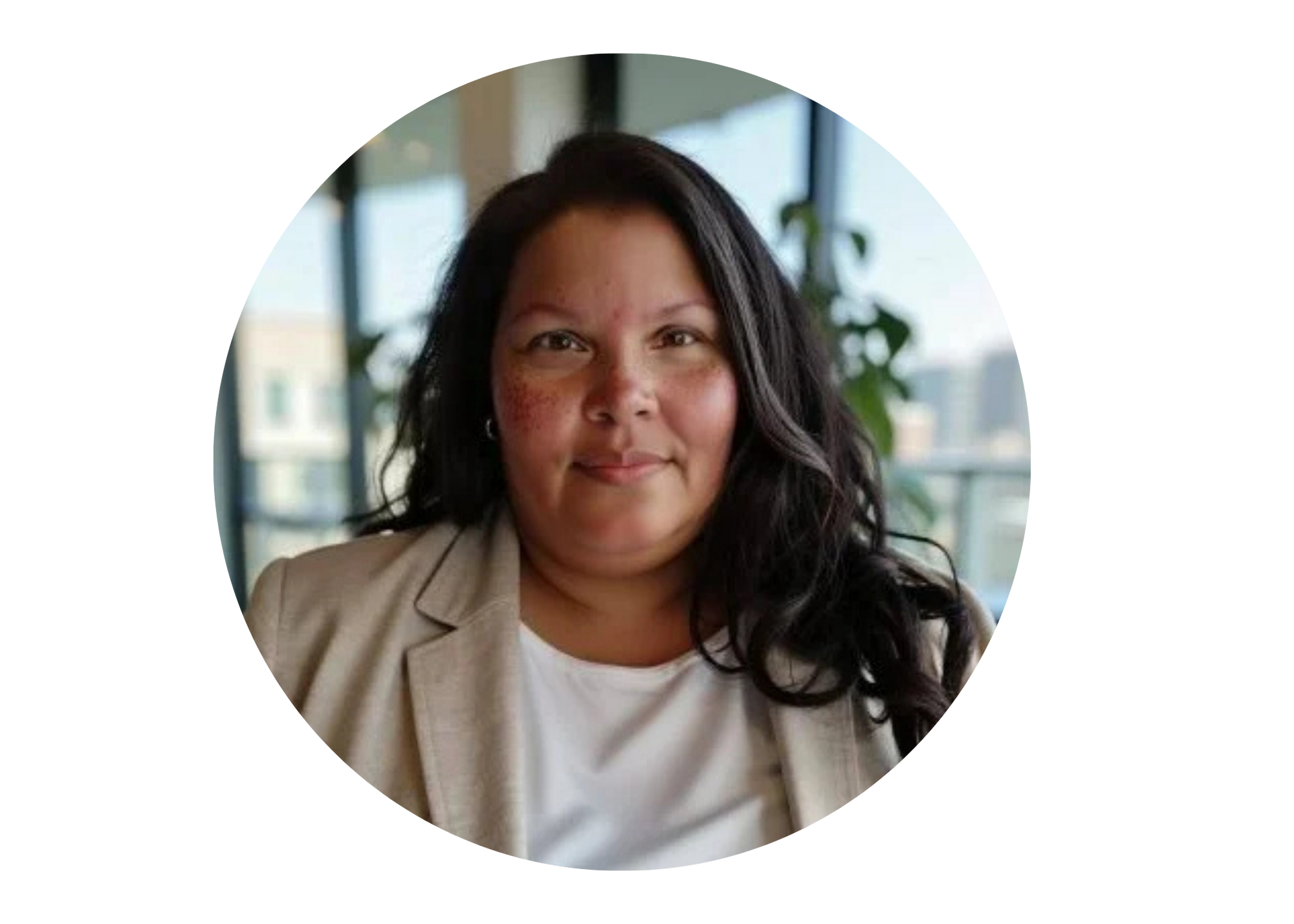
Stacey Mathews
Founder & CEO, SAMatthews LLC
Stacey Matthews brings the intersecting lived experiences of being foreign-born, navigating migration, living with disabilities, and facing housing instability, including periods of doubling up. Her nearly two decades of experience as a Black woman working within data systems is informed by personal understanding of how systems fail vulnerable populations. Her expertise in HMIS and data analysis is grounded in commitment to ensuring that data serves communities rather than simply satisfying compliance requirements.
Our Commitment to Kalamazoo County
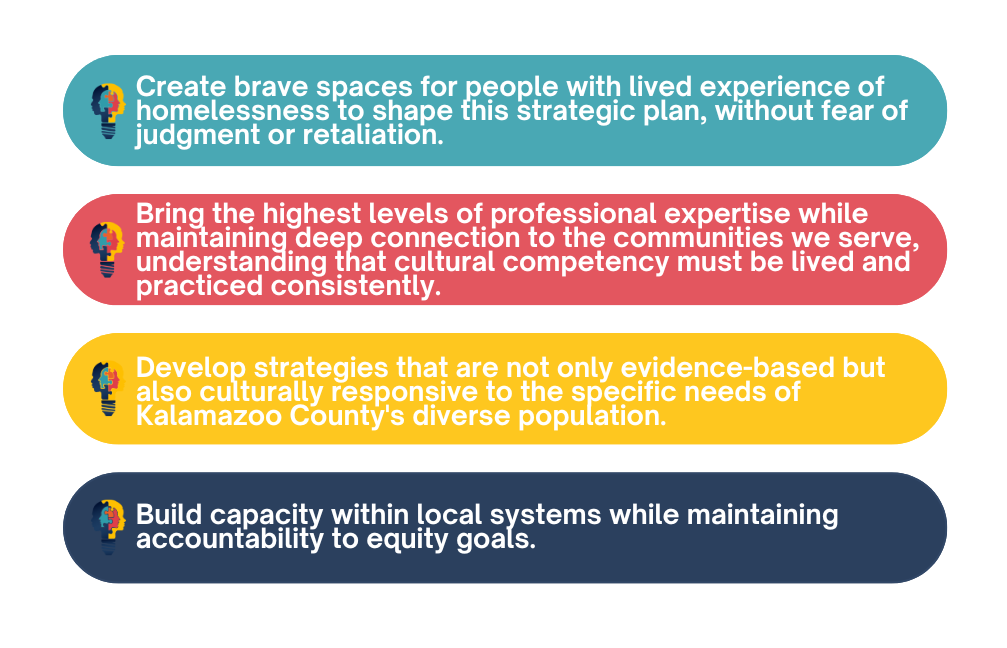
It's all happening in
FAQ
What is a strategic plan and why do we need one?
A strategic plan is a roadmap that outlines specific goals, strategies, and actions to end homelessness in your community. It helps coordinate efforts across organizations, secure funding, and ensures we're using evidence-based approaches that work.
How long will this process take?
Development timelines vary by community based on local needs and circumstances. The Kalamazoo County CoC has engaged MSWLLC for three months to complete the process. However, timelines may adjust based on findings, stakeholder availability, and additional community input needs. Our team remains flexible to ensure we deliver an actionable, measurable plan without compromising quality or thoroughness.
Who gets to provide input?
Everyone! We're seeking input from people with living/lived experience of homelessness, service providers, community leaders, businesses, faith communities, law enforcement, and all residents who care about this issue.
How will my input actually be used?
All community feedback is documented, analyzed for common themes, and directly incorporated into plan strategies and priorities.
Will this actually make a difference?
Strategic plans work best when they have strong community support, dedicated funding, and committed leadership. Similar plans in other communities have shown measurable reductions in homelessness when implemented effectively.
What happens after the plan is finished?
The real work begins with implementation. The plan will guide funding decisions, program development, and policy changes. Progress will be tracked and reported regularly to the community.